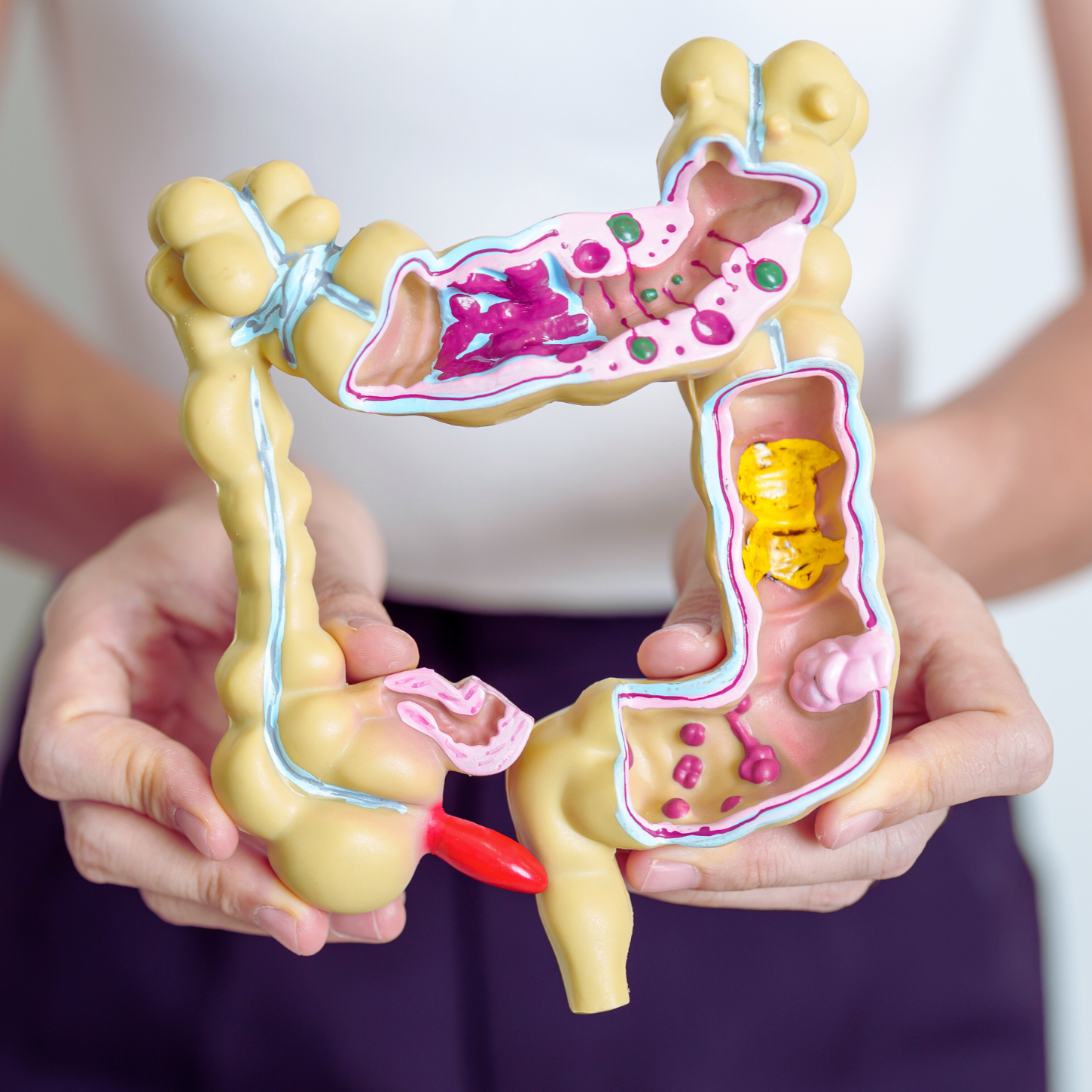What if I told you that the second most common neurodegenerative disease in the world—affecting over 10 million people globally—might actually start in your gut, not your brain?
For decades, we've been told that Parkinson's disease is a one-way street. You get the diagnosis, you take the medications, and you hope for the best while the disease slowly progresses. End of story. But what if that story is incomplete?
If you're reading this, chances are Parkinson's has touched your life or the life of someone you love. Maybe you've watched the tremors begin, witnessed the slow shuffle that replaces confident strides, or seen how this condition changes everything—from buttoning a shirt to navigating relationships and planning for the future. With someone diagnosed every nine minutes in the United States alone, and cases expected to double by 2040, Parkinson’s has reached epidemic proportions.
Here's what makes this crisis even more urgent: we've been looking at Parkinson's all wrong. For generations, we've viewed it as a straightforward brain disease with a predictable progression—dopamine cells die, movement suffers, medications help temporarily, then decline continues. Simple, tragic, inevitable.
Wrong.
Cutting-edge research is revealing that Parkinson's may actually begin in your digestive system, travel through your body like a slow-moving infection, and be triggered by factors we encounter daily—from pesticides on our food to blood sugar spikes after meals. This isn't just fascinating science—it's a complete game-changer that offers hope we're not just passive victims, but active participants who can influence our neurological destiny.
In this journey from a curious London physician's 1817 observations to today's revolutionary discoveries, you'll uncover how gut bacteria, environmental toxins, blood sugar patterns, and nutritional deficiencies may be the real culprits behind this devastating condition—and why this knowledge changes everything about prevention and treatment.
Table Of Contents:
The Discovery
The Curious Case of Dr. James Parkinson
The story of Parkinson's disease begins on a foggy London morning in 1817, when a curious physician named James Parkinson decided to document something strange he'd been observing during his daily walks. He noticed several neighbourhood residents with a peculiar combination of symptoms: involuntary tremors, stooped posture, and a distinctive shuffling gait.
These observations led to him writing "An Essay on the Shaking Palsy," a text that, despite being based on just six cases, remains clinically relevant over 200 years later.
For nearly 60 years, Parkinson's work gathered dust until French neurologist, Jean-Martin Charcot began studying the condition more systematically. Charcot suggested the disease be named "Parkinson's disease" in honour of the original observer, and he made crucial distinctions between the tremor of Parkinson's and other movement disorders. He also made a key observation Parkinson had missed: not everyone with the disease had tremors.
The Dopamine Revolution
The real breakthrough came in the 1960s when scientists discovered that the chemical dopamine was dramatically reduced in the brains of people with Parkinson's. They found that it was particularly reduced in a region called the substantia nigra—a small but crucial area responsible for movement control. This led to the development of levodopa (L-DOPA), hailed as a "miracle drug" that gave people real hope for symptom relief for the first time.
Understanding the Root Causes: Why Parkinson's Develops
Fast-forward to 2024, and our understanding of Parkinson's has exploded. For years, scientists thought Parkinson's disease started in the brain and worked its way out. Turns out, they had it completely backwards.
The Gut-Brain Connection: It Starts in the Gut
According to the groundbreaking Braak theory, the telltale protein clumps of Parkinson's (called alpha-synuclein) first appear in the nerves of your nasal and digestive tract, and then travel upward via the vagus nerve like a slow-moving infection. This explains why constipation often appears decades before the first tremor—your gut has been trying to warn you all along.
But it gets more fascinating. People with Parkinson's have dramatically different gut bacteria compared to healthy individuals. They tend to harbor more pro-inflammatory bacteria that keep their immune system in constant attack mode. Add "leaky gut" to the mix—where the intestinal barrier becomes permeable—and toxins and bacterial debris slip through, triggering the neurological changes that eventually become Parkinson's.
Genetics: The 10% Factor
Fifteen years after the dopamine breakthrough, scientists discovered the genetic piece of the puzzle. One of the most important findings involves alpha-synuclein—the same protein that forms those toxic clumps we mentioned earlier. When the gene that makes this protein gets mutated, it can cause the protein to misfold and stick together like molecular velcro, creating the brain-damaging tangles that are a hallmark of Parkinson's.
Here's the surprising twist: only 13% of Parkinson's cases are actually genetic. Research shows that a Parkinson's diagnosis before age 50 is most commonly caused by genetic factors, whereas a diagnosis after 50 is most commonly driven by environmental factors. Even more intriguing, people without genetic mutations can still develop the same toxic protein clumps, proving that your lifestyle, gut health, and environmental exposures can trigger the exact same brain damage that faulty genes cause directly.
Environmental Toxins: The Silent Saboteurs
Your brain doesn't exist in a bubble—it's constantly processing the chemical cocktail of modern life, and some of these chemicals are quietly sabotaging your neurons and increasing your risk of Parkinson's disease.
Research has linked several environmental neurotoxins to increased Parkinson's risk, including pesticides, heavy metals like lead, aluminum, cadmium, and mercury, plus industrial chemicals, mycotoxins, and even contaminated well water. The scary part? These toxins can accumulate over decades before symptoms appear, creating a "toxic burden" that slowly damages the same brain cells that Parkinson's destroys.
There are three environmental culprits that deserve special attention:
These pesticides have shown the strongest links to Parkinson's development. Paraquat, a widely-used herbicide, is so toxic that 32 countries have banned it. Exposure increases Parkinson’s risk by 150%, yet paraquat use on US agricultural fields has doubled over the last decade.
-
Trichloroethylene (TCE)
This industrial solvent was once commonly used in dry cleaning, metal degreasing, and decaffeinated coffee production. While consumer uses were largely restricted in the 1970s, industrial applications continue today under regulation. TCE can contaminate groundwater for decades, with reports showing that tap water of more than 19 million Americans contains detectable levels, leading to a 70% increased risk of Parkinson's disease.
-
Air pollution
Studies show that people living in areas with higher air pollution have increased rates of Parkinson's, and the risk is dose-dependent—the more polluted your environment, the higher your risk.

Nutritional Deficiencies
Your brain is an incredibly energy-hungry organ, consuming about 20% of your body's total energy despite being only 2% of your body weight. When it doesn't get the nutrients it needs, it becomes vulnerable to the exact processes that drive Parkinson's: oxidative stress, inflammation, and mitochondrial dysfunction.
The Critical Deficiencies:
- CoQ10 (coenzyme Q-10): Affects more than 30% of people with Parkinson's disease. CoQ10 is like the spark plug for your cellular powerhouses (mitochondria)—without adequate levels, your brain cells literally can't produce enough energy to survive and function properly.
- Glutathione: Depletion is found in approximately 40% of people with early-stage Parkinson's. Glutathione is your brain's master antioxidant and detoxifier—it neutralizes harmful free radicals and helps remove toxins that could damage dopamine-producing neurons. When glutathione levels drop, your brain becomes like a city without a cleanup crew, allowing toxic damage to accumulate unchecked.
- Lithium: People with Parkinson's are 74 times more likely to have undetectable levels of this crucial trace mineral. Your brain cells desperately need lithium for proper function, but your body can't manufacture it—you must get it from food and water. Areas with lower lithium levels in the water supply show higher rates of Parkinson's, Alzheimer's, and even psychosis and violent crime.
- Vitamin D: Increasingly recognized as both a risk factor and progression accelerator for Parkinson's, as it helps to protect brain cells and reduce neuroinflammation. Higher levels of vitamin D show slower disease progression.
Blood Sugar Dysregulation
Your blood sugar patterns today may also be determining your brain health decades from now. People with Type 2 diabetes have a 27-38% increased risk of developing Parkinson’s disease. But it’s not just high blood sugar that’s the problem—it's also the dangerous roller coaster of blood sugar fluctuations (glycaemic variability).
When blood sugar spikes, your body produces methylglyoxal (MGO), a toxic compound that essentially "caramelizes" proteins in your brain. MGO specifically targets alpha-synuclein, making it more likely to form the sticky clumps that kill dopamine neurons.
What makes this particularly concerning is that 25% of people with "normal" glucose tolerance still experience severe blood sugar fluctuations that reach diabetic ranges throughout the day. This silent brain damage could be occurring in millions who consider themselves metabolically healthy.
This process isn't acute—it's cumulative. Parkinson's has a long "pre-motor phase" lasting years or decades, during which 60-80% of dopamine-producing cells are already lost before the first symptoms appear. Even mild blood sugar fluctuations, repeated over decades, can tip your brain's protein balance toward disease.
Other Contributing Factors
Parkinson's rarely has a single cause—it's usually a perfect storm of factors converging over decades. Food sensitivities that trigger neurological autoimmunity (especially dairy), chronic stress, head trauma, and even loneliness can all increase disease risk and accelerate the disease process.
Here's how these seemingly different factors create a devastating chain reaction: when your gut becomes dysfunctional, it triggers inflammation that travels straight to your brain. This neuroinflammation creates oxidative stress—essentially "rusting" your brain cells—and damages the mitochondria that dopamine-producing neurons need to survive. Environmental toxins accelerate this process, nutritional deficiencies leave your brain defenceless, and blood sugar fluctuations add fuel to the inflammatory fire.

A New Chapter Begins
Here's what makes this new understanding so exciting: unlike your genetics, most of these factors are within your control. You can influence your gut health, reduce toxic exposure, correct nutritional deficiencies, and stabilize blood sugar. The revelation that Parkinson's begins in the gut, gets accelerated by environmental toxins, and can be influenced by blood sugar patterns represents a fundamental shift in our understanding. Your neurological destiny may be more modifiable than we ever imagined.
What would Dr. James Parkinson think if he could see how far we've come? Probably amazed that his observations of six individuals on London streets launched a global research effort that continues to offer hope to millions worldwide. But perhaps he'd be most encouraged to learn that the "shaking palsy" he described isn't the inevitable, one-way street it seemed to be.
The story of Parkinson's disease is still being written, and the plot has taken an unexpected turn toward hope. We're discovering that the processes driving this disease can actually be influenced, and the power to shape our neurological future may be sitting right in our kitchen cabinets, growing in our gardens, and flowing through our daily choices. For the first time in over 200 years, we're not just passive observers of its progression—we're active participants in shaping its outcome.














What Do You Think? Comment Below: